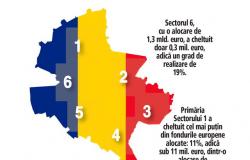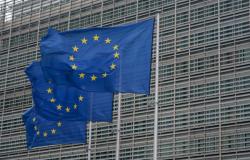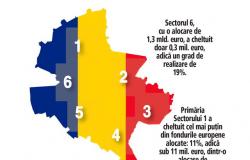On April 18, a delegation made up of representatives of the European Commission, of the program structures from Bucharest and Kiev, as well as journalists, participated in a tour of the cross-border projects in Suceava and Botoșani, guided by the representatives of the hosts, the Joint Technical Secretariat within Regional Office for Cross-border Cooperation (BRCT) Suceava.
The tour took place within the closing event of the program that took place the day before, on April 17, in Suceava, namely the Final Conference of the Joint Operational Program Romania – Ukraine 2014-2020. Event organized by the Suceava Regional Office for Cross-Border Cooperation as the Joint Technical Secretariat, together with the Management Authority within the Ministry of Development, Public Works and Administration.
The conference gathered over 250 participants from Romania and Ukraine, representatives of the European Commission, representatives of the structures that managed the program from the two participating states, namely the Ministry of Development, Public Works and Administration from Romania and the Secretariat of the Cabinet of Ministers of Ukraine, representatives of the Consulate General of Romania in Chernivtsi and the Embassy of Ukraine in Bucharest, representatives of local authorities, as well as beneficiaries of funding.
Numerous partners from Romania (Suceava, Botoșani, Satu-Mare, Maramureș, Tulcea counties) and from Ukraine (Cernăuți, Ivano-Frankivsk, Transcarpathia, Odesa regions) from over 25 projects financed by the program, came before the public present in Suceava and they talked about the need that led to the implementation of the projects, about the challenges and satisfactions of making investments on both sides of the border between Romania and Ukraine.
At the opening of the event, Cezar Grozavu – executive director of BRCT Suceava highlighted that “borders exist in people’s minds, but not in their souls”, a fact proven by the challenges faced by partners during the implementation period of joint projects, both during the pandemic and especially during the two years of unjustified war in Ukraine. The partners turned crises into opportunities, emerging as winners, especially thanks to interpersonal relations and solidarity.
Messages of appreciation and encouragement also came from the undersecretary of state within the Ministry of Public Works Development, Dragoș Drăghescu, the general director of the General Directorate for European Territorial Cooperation, MDLPA, Camelia Coporan, the representative of the Embassy of Ukraine in Bucharest Oleg Balika, who addressed thanks to Romania and, in particular, to the Romanians in the areas close to the border for the help given to the refugees. Appreciation and congratulations for promoting the values that unite us and strengthen cooperation within the projects included the greeting of the General Consul of Romania in Chernivtsi, Irina Loredana Stănculescu.
The purpose of the tour of field visits to the funded projects on April 18 was to highlight the concrete results obtained through the partnerships between public authorities, non-governmental organizations and public institutions from Romania and Ukraine, with the support of the European Union, through the Romania – Ukraine 2014-2020 Program .
Each of the 4 projects visited during the tour offered a broad perspective on the investments and innovations brought to local communities, namely the training ground for emergency interventions in Siret, developed through the large infrastructure project BRIDGE, contributing to the training of the intervention forces and improving the ability to react in case of emergency, the underground multimedia museum built in the historical center of Botoșani through the ROOTS cultural project, which brings to light the rich history and cultural heritage of the region, the modernization of schools in Bălcăuți, equipped with advanced technology, including interactive whiteboards and a sports field with modern standards, thus improving the quality of education and access to modern facilities for students from rural areas and the Innovation Center in Botoșani, dedicated to the study of energy efficiency among young people, as well as a charging station for electric cars.
The citizens of the border counties therefore benefit from investments in the infrastructure of education, skills and training, medical infrastructure, the modernization and equipment of medical units, the rehabilitation of the transport infrastructure, the restoration of cultural objectives, as well as the preparation of the authorities and the population for emergency situations. In the 2014-2020 period, the Romania-Ukraine program financed 66 projects, with a total value of 66 million euros.
In the context of the calls already launched by the 2021-2027 Interreg NEXT Romania-Ukraine cooperation program, as well as those that will follow, the partnerships already created will be used to access new European funds.
The events dedicated to the closing of the Romania-Ukraine program underlined once again that cross-border projects and support from the European Union continue to play an important role in promoting cultural exchanges, improving infrastructure and supporting innovation in the region.
Read also: https://vivafm.ro/2024/04/18/conferinta-finala-a-programului-operational-comun-romania-ucraina-2014-2020-2/
comments
comments
Tags: Closing RomaniaUkraine program VIVA
-





